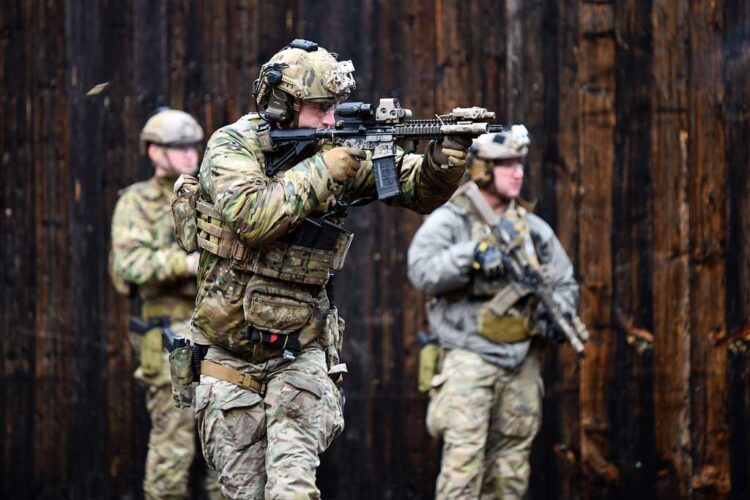Potential Challenges & Solutions for Future Investment
Investing in new technologies comes with challenges for SOF teams looking to stay ahead of their adversaries’ capabilities. One major challenge is ensuring that any new technology used by SOF is secure enough not to be compromised by malicious actors or hackers seeking critical information or sensitive data. Another challenge is ensuring that any new technology purchased or used by SOF complies with existing laws and regulations governing military operations worldwide. To address these challenges, special operations forces commands must put rigorous protocols in place to ensure that any technological investments made are secure and compliant with applicable laws and regulations before deployment on the field or during active duty operations elsewhere around the globe.
“It’s is a balance. Some of those tools are interchangeable. We can bring them across the spectrum,” Gen. Bryan Fenton, commander of Special Operations Command, told senators. “We’ll reinforce the capabilities we have in the counterterrorism arena transfers well over into our integrated deterrence approach.”
“We still will continue from the SOF enterprise to do counterterrorism and crisis response and there’s some lessons from that that are very applicable. We will continue to work by, with and through partners, we will continue to focus on placement and access, sometimes through those partners, sometimes through our own exquisite capabilities unilaterally,”
Maier said days later at a House Armed Services Subcommittee hearing on March 9.
The ongoing transition also broadly means heavier investments in advanced technologies.
“I think what we will need to focus on more is if we are indeed working across all domains; some of those domains have broadened from what was applicable in the fight against Al-Qaeda and ISIS. So space, cyber has already been mentioned, the ability to recognize that the world is one that operating without being seen is particularly challenging,” Maier said. “We need more tactics, techniques and procedures that allow us to do that. We also need more technology that allows us to do that in a very technologically enabled world.”
While SOF’s role in counterterrorism is widely understood and appreciated, Maier stated that it is crucial to ensure that the value proposition of SOF in integrated deterrence and campaigning against strategic competitors is accounted for and incorporated into the department’s processes.
One of the benefits of investing in new technologies is that it can give SOF an edge in competition with nation-states. For example, developing new cyber capabilities can help SOF thwart enemy attacks and gain insights into their plans and intentions. In addition, investing in technology can help SOF keep pace with the rapidly changing operational environment. For example, by adopting new wireless technologies, SOF can communicate more securely and effectively in contested environments where adversaries are trying to jam or intercept signals.
Finally, investing in technology can help SOF save lives by reducing its reliance on manpower-intensive operations. For example, remotely piloted aircraft instead of ground troops can help reduce risk to personnel while still accomplishing mission objectives.
“Next-Generation ISR (intelligence, surveillance, and reconnaissance) enables finding and fixing a target in a contested environment and consists of fusing three data streams from cyber-based ISR, space-based ISR payloads, and small autonomous and collaborative unmanned systems,” Maier and Fenton explained in written testimony to Congress. “In the cyber domain, we are integrating tools to provide an open architecture mission command system optimized for SOF’s role in integrated deterrence. We are also leveraging the full range of open-source data to ensure SOF have access to timely, geo rectified, and accurate data to inform their decisions. To better harness advances in space, USSOCOM has established a collaborative arrangement with the Space Force and the Space Development Agency to experiment with payloads that will provide its forces with space-based capabilities at the tactical edge.”
SOF leaders also note that this gives them a competitive advantage over tools that use deep fake AI technologies.
“I think some of what we envision using AI for is to reduce some of the delays of human beings in the loop or on the loop. Some of that might be in the information space, but some of that could be in traditional warfighting capabilities or the ability to take in large quantities of data and gain situational awareness,” Maier said. “But still, at some point, probably there’s going to be a human being that makes a decision, especially as we talk about things that may be lethal or kinetic in that process. There’s an ethics piece of this, there’s a functional man-machine interface that’s going to have to be worked out and there’s also the, I think, the question of which types of technology do you invest in to actually get the biggest bang for the buck because if you choose wrongly, you may end up being even further behind.”










COMMENTS